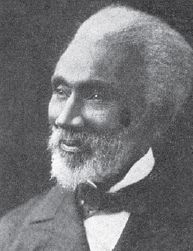
Rev. William Jackson, pastor of the Salem Baptist Church and Chaplain of the 54th Massachusetts Regiment
Today, Edwin Stanton, the U.S. Secretary of War, gives Massachusetts governor John A. Andrew permission to begin recruiting black troops for the first U.S. colored regiment. Andrew sets about assembling officers for the 54th Massachusetts Infantry, all of whom are to be white, as mandated by the government.
Among the officers selected is Colonel Robert Gould Shaw, who is eager to see black Americans exercise their freedom by joining the military. Gould later becomes the commanding officer, leading the 54th in an assault on South Carolina’s Fort Wagner in July.
Two weeks following the call for volunteers, more than 1,000 free blacks from Massachusetts, New York, Pennsylvania, Ohio and other Northern states, as well as newly-freed slaves from the South, answer the call to join the 54th Massachusetts and join the battle against the Confederacy. Among the volunteers is prominent African Baptist minister Rev. William Jackson, pastor of Salem Baptist Church, who becomes the regimental chaplain. Jackson serves the spiritual needs of a unit comprised of many religious soldiers, including a number of Baptists.
While Southern whites condemn today’s move by the U.S. government to recruit blacks as soldiers–and Southern Baptist newspapers in the weeks and months ahead voice disdain and anger regarding the matter–the course of the war is changed by the decision. In the months and years ahead, black soldiers prove key to the Union’s military success, exhibiting great bravery and providing much-needed manpower for the Union as the recruitment of white soldiers becomes evermore challenging.
Sources: Luis Fenollosa Emilio, A Brave Black Regiment: The History of the Fifty-Fourth Regiment of Massachusetts, 1863-1865, Da Capo Press, 1995, p viii-ix (link); “The 54th Massachusetts Infantry” (link)


